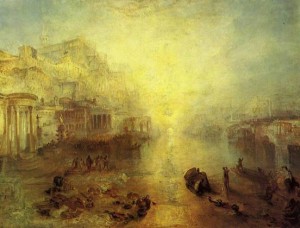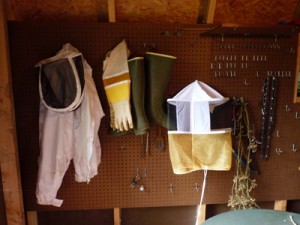Spring Waning Bloodroot Moon
I’ve discovered an analogy between translation and science. Coming to a premature conclusion about the meaning of a passage causes chopping and cramping to fit meanings, declensions and conjugations into the preconceived notion. The better way lies in suspending judgment, collecting all the possibilities, then, sorting them out in context, both with the larger work and among themselves, to find the probable meaning the original author had. In science, the old method, the deductive method, began with a premature conclusion about the nature of reality, say, the earth is the center of the solar system and then made observational data fit the conclusion. Francis Bacon summed it up well. If method were a foot race, then the wrong method would take you further and further from your goal, no matter how fast you ran; the right method (the experimental method) carries you toward your goal, again no matter how fast you run.
Biblical translation often suffers from this very problem. Predetermined theological or dogmatic conclusions force particular choices in translation, choices that support or reject a sanctioned premise.
It is, too, unfortunately, a trap fallen into by many folks I know. Using second or third removed “sources” for so-called teachings is not new, but it’s phony baloney and muddies even the best minds. Let me give you an example. Many of the Wiccan or neo-pagan folk refer with confidence and certainty to certain Celtic religious practices. Here’s the rub. All we know about the ancient Celts in other than an archaeological sense, comes from three exceedingly suspect sources: Roman writers like Julius Caesar and Tacitus, Roman Catholic monks who wrote down some material about the Celtic folk religion and a romanticized version of Celtic lore that surfaced in 18th century England. The Romans conquered and subdued the Celts militarily; the Catholics oppressed them spiritually; and the English treated the Celts as second and third class subjects. Yet it is the literature of these three sources that contain the deposit of information about early Celtic religious practices and beliefs.
Now, even this data, through careful scholarship and skilled literary criticism, can yield solid or at least strongly suggestive information. We learn some things about the Triple Goddess Brigit, for example, through material written about the Catholic saint who co-opted her place in Celtic lives, St. Bridgit.
It’s an odd field, these contemporary attempts to recapture a relationship in the present with the attitudes toward the earth held in our deep past. I count myself as part of it, though with a twist, rather than retrieving the thought world and ceremonies of our ancestors, I’m following Emerson. We need an original relationship to the earth, one based on our experience, not theirs, a religion of our own “revelations” gleaned from the earth as she is now, not the record of theirs.
As one way of getting at it, I take a cue from an Iroquois shaman I met long ago who prayed for the winged ones, the four legged, the ones who swim in the rivers, lakes and oceans, the flying ones and the ones who crawl. When I asked him why he didn’t he pray for the two-leggeds, the answered, “Because we’re so fragile we depend on the health of all the others.”
We don’t need to become faux Iroquois to grasp and incorporate this sensibility. All we need do is realize the onrush of climate change and the danger it poses to our species. In that one move we can shift over to a deep respect for mother earth and all her parts, the living and the inanimate.
That is the fear based way and I’m perfectly ok with it if that’s what it takes to move you because not all fear is baseless.
Another way is to step up your own intimacy with the living world by growing vegetables, keeping bees, growing flowers, participating in the local foods movement, shopping at food co-0ps, This web of activities coupled with mindfulness about where you are and what you eat can increase your sensitivity to the thrumming, vital interdependence of which we are a real and intextrictable part.
Many use camping, hiking, bird-watching, weather forecasting, fishing and hunting to put themselves into this I-thou relationship with the earth.
There’s so much more here, but I want to plead for direct experience, not the cadging of other cultures, not the assumption that by associating ourselves with indigenous persons we become somehow more in tune with the earth. No, the one you need to be associating with is yourself and your daily, lived experience. Can we learn from others? Of course. Can we become them in any authentic way? No. Absolutely not.

 The moment was extraordinary. What had been a fuzzy, blurred night sky became black velvet set with bright points of light.
The moment was extraordinary. What had been a fuzzy, blurred night sky became black velvet set with bright points of light. the new packages takes place as soon as possible after I pick up the bees from Nature’s Nectary outside Stillwater. They may wait a day, but not more.
the new packages takes place as soon as possible after I pick up the bees from Nature’s Nectary outside Stillwater. They may wait a day, but not more. the colonies. I’m also going to check out better ways to have a bee proof environment in which to extract honey. It was pretty bad last year.
the colonies. I’m also going to check out better ways to have a bee proof environment in which to extract honey. It was pretty bad last year.